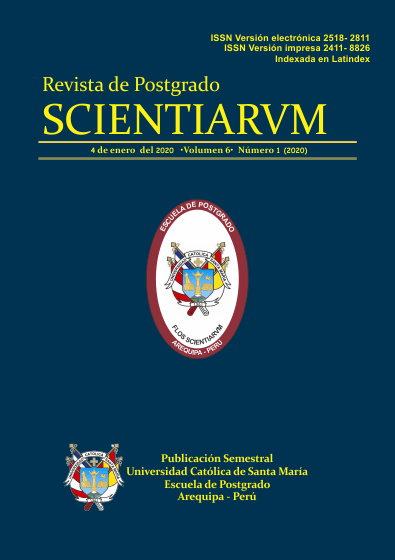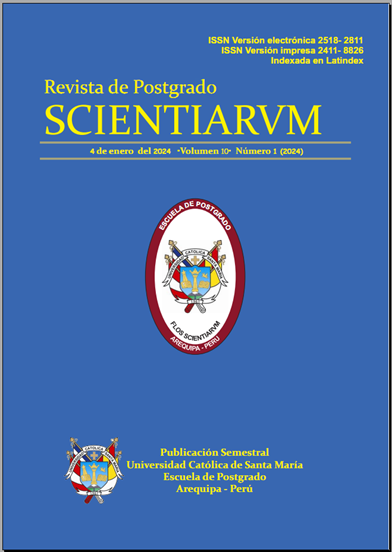LA TERCERIA DE PROPIEDAD Y EL VII PLENO CASATORIO CIVIL. QUEBRANTANDO LA SEGURIDAD JURIDICA. UN CAMINO HACIE EL FRAUDE PROCESAL
THE THIRD PARTY OF PROPERTY AND THE VII CIVIL CASATORY PLENARY. BREAKING LEGAL SECURITY. A PATH TO PROCEDURAL FRAUD
Gelber Ramírez Cueva
- Universidad Católica de Santa María, Arequipa - Perú
RESUMEN: Nuestra Corte Suprema de Justicia de la República al momento de resolver los procesos de tercería de propiedad en aquellos casos donde se discutía el derecho de propiedad no inscrito en contra de la medida cautelar de embargo inscrita en los Registros Públicos prefirió resolver privilegiando el derecho de propiedad no inscrito en el entendido que en nuestro sistema legal la inscripción en el Registro Público del derecho de propiedad no es constitutivo de derecho sino meramente declarativo, operando solamente el consentimiento de las partes; considerando además la prevalencia del derecho real en nuestra legislación actual por sobre el derecho de crédito, motivo por el cual nuestra Corte Suprema resolvió que para acreditar el derecho de propiedad no inscrito del tercerista que solamente se debe requerir como mínimo que se presente documento privado de fecha cierta pero que éste sea de fecha anterior a la inscripción del embargo en los Registros Públicos.
Por lo que podemos concluir que al flexibilizarse la acreditación el derecho de propiedad a favor del tercerista exista la posibilidad de que se cometan fraudes en contra de cualquier acreedor y que ello repercuta en la recuperación de sus acreencias, probablemente por el contubernio que podría existir entre el deudor de éstas últimas y el tercerista, lo que ocasionaría que se generen sobrecostos en la formalización de garantías por la falta de seguridad jurídica en perjuicio de las entidades financieras, lo que conllevaría que la posibilidad de acceso al crédito se vea aún más limitado.
Palabras claves: Tercería de Propiedad, VII Pleno Casatorio Civil, Derecho Real de Propiedad, Derecho de Crédito, Medida Cautelar de Embargo, Seguridad Jurídica, Fraude Procesal.
ABSTRACT: Our Supreme Court of Justice of the Republic at the time of resolving the property third party processes in those cases where the right of unregistered property was discussed against the precautionary measure of embargo registered in the Public Registries, preferred to resolve privileging the right of property not registered in the understanding that in our legal system the registration in the Public Registry of property rights is not constitutive of law but merely declarative, operating only the consent of the parties; considering also the prevalence of the real right in our current legislation over the credit right, which is why our Supreme Court resolved that in order to accredit the unregistered property right of the third party, it should only be required as a minimum that a private document of a certain date but that it is dated prior to the registration of the embargo in the Public Registries. Therefore, we can conclude that by making the accreditation more flexible, the property right in favor of the third party exists the possibility of fraud being committed against any creditor and that this may have repercussions in the recovery of their claims, probably due to the collusion that could exist between the debtor of the latter and the third party, which would cause cost overruns in the formalization of guarantees due to the lack of legal certainty to the detriment of financial entities, which would mean that the possibility of access to credit is even more limited.
Key words: Third Party Property, VII Civil Plenary Plenary, Real Property Law, Credit Law, Precautionary Seizure Measure, Legal Security, Procedural Fraud.
Revista Seleccionada
Enero 2020 Volumen 6 - Número 1 P 3-8
DOI: 10.26696/sci.epg.0105
Enlaces
EDITORIAL
CIENCIAS SOCIALES Y HUMANIDADES
PROTECCION DEL MEDIO AMBIENTE EN LAS COMUNIDADES CAMPESINAS, SEGUN TRIBUNAL CONSTITUCIONAL
SATISFACCION DEL ESTUDIANTE RESPECTO A LA EDUCACION VIRTUAL EN TIEMPOS DE COVID-19
CIENCIAS BIOLÓGICAS Y DE SALUD


